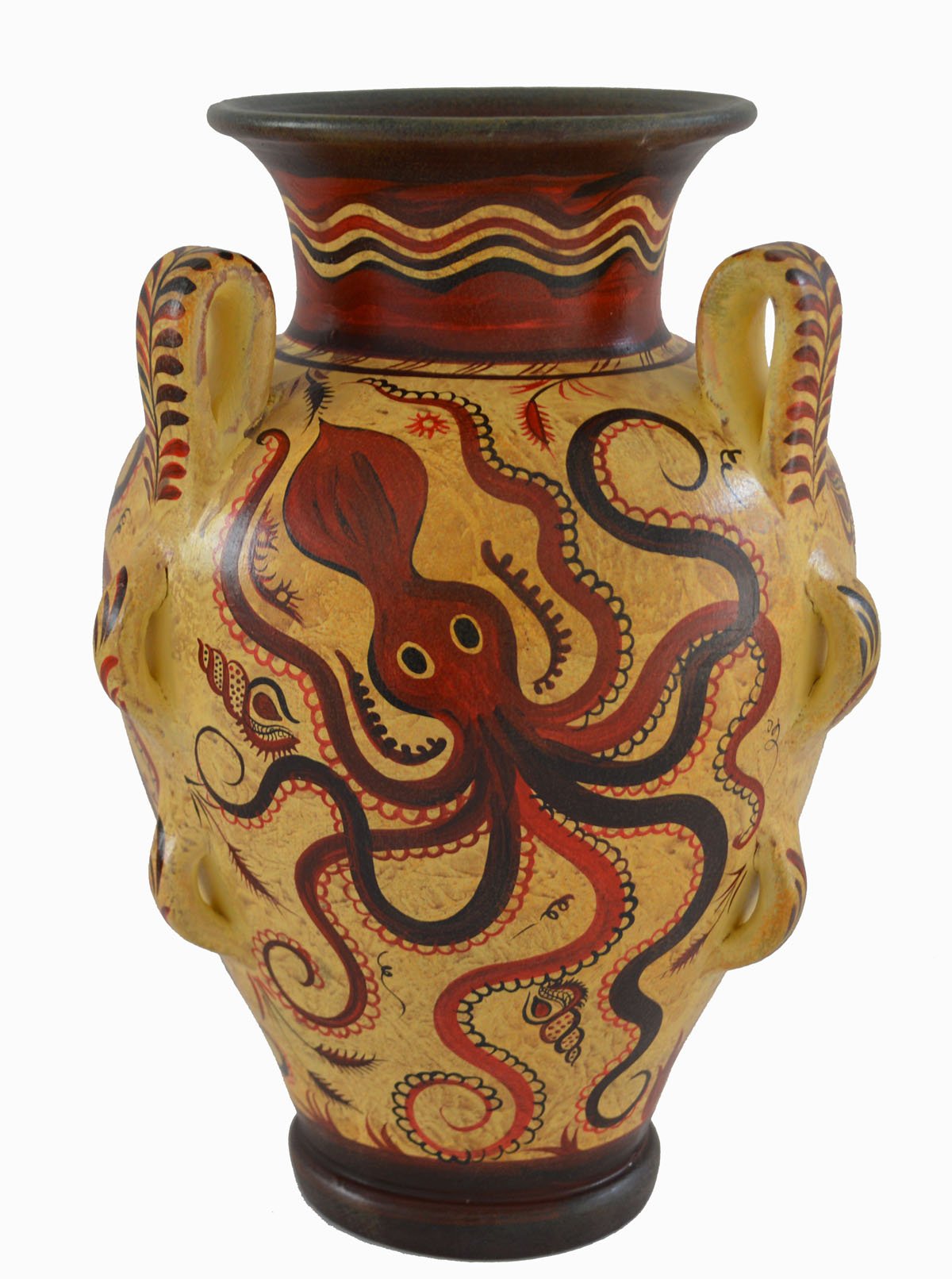Product Details
Estia Creations Minoan Art Pottery Mini Amphora Vase – Octopus – Ancient Crete
Free Shipping+Easy returns
Product Details
Estia Creations Minoan Pottery Small Amphora Vase – Dolphin Octopus Design – Handmade in Greece
Free Shipping+Easy returns
Product Details
Greek Minoan Octopus Vase, 1700-1450 BC, Heraklion Archaeological Museum Replica 14cm
Free Shipping+Easy returns
Product Details
Estia Creations Minoan Art Pottery Amphora Vase – Octopus – Ancient Crete – Handmade in Greece
Free Shipping+Easy returns
Product Details
Minoan Pottery Kamares Oinochoe Vase – Museum Replica – Ancient Crete
Free Shipping+Easy returns
Product Details
Minoan Vase Pottery Painting Octopus Ancient Greek Crete Ceramic Knossos
Free Shipping+Easy returns
Product Details
Octopus Minoan Clay Vase 1500 BC Poster Print by Science Source (18 x 24)
Free Shipping+Easy returns
Product Details
Estia Creations Minoan Pottery Amphora Vase – Octopus Design – Ancient Crete Greece
Free Shipping+Easy returns
Product Details
Estia Creations Minoan Pottery Amphora Vase – Octopus Design – Ancient Crete
Free Shipping+Easy returns
Product Details
Estia Creations Minoan Pottery Amphora Vase – Octopus Design – Handmade in Greece
Free Shipping+Easy returns
Product Details
Estia Creations Minoan Pottery Amphora Vase – Octopus Design – Handmade in Greece – Crete
Free Shipping+Easy returns
Product Details
Estia Creations Minoan Art Pottery Mini Amphora Vase – Dolphins – Ancient Crete
Free Shipping+Easy returns
Minoan art

We love this Minoan Octopus Vase. Made around 1500 BC, it was accidentally smashed by a visitor to the Heraklion Museum. But archaeologists then found out that it appear to have been smashed and put back together in ancient times.
Ancient Greek Minoan Ceramic Jar Museum Replica Terracotta Octopus Vase 16.5cm

Ancient Greek Minoan Ceramic Jar Museum Replica Terracotta Octopus Vase 16.5cm Materials: Clay, Fire, Terracotta, Acrylic Colours, Hand Made, Hand Painted Minoan, Any member of a non-Indo-European people who flourished (c. 3000–c. 1100 bc) on the island of Crete during the Bronze Age. The sea was the basis of their economy and power. Their sophisticated culture, based at Knossos, was named for the legendary King Minos. It represented the first high civilization in the Aegean area. The Minoans exerted great influence on the Mycenaean culture of the Greek islands and mainland. Minoan culture reached its peak c. 1600 bc and was noted for its cities and palaces, extended trade contacts, and use of writing (see Linear A and Linear B). Its art included elaborate seals, pottery, and, notably, the vibrant frescoes decorating palace walls, which depicted both religious and secular scenes, including goddesses reflective of a matriarchal religion. Palace ruins show evidence of paved streets and piped water. Familiar Minoan art motifs are the snake (symbol of the goddess) and the bull and leaping dancer, also of mystical significance.
Minoan Art

Cretan Minoan Vase with Octopus Museum Replica Reproduction (1500-1450 B.C.)

Cretan Minoan Vase with Octopus Museum Replica Reproduction (1500-1450 B.C.)
Ancient Art

FIT

Period: Late Helladic IIIC. Date: ca. 1200–1100 B.C.. Culture: Helladic, Mycenaean. Medium: Terracotta. Dimensions: H. 10 1/4 in. (26 cm); diameter 8 7/1…
Bronze Age World

National Archaeology Museum, Athens
Wish List












